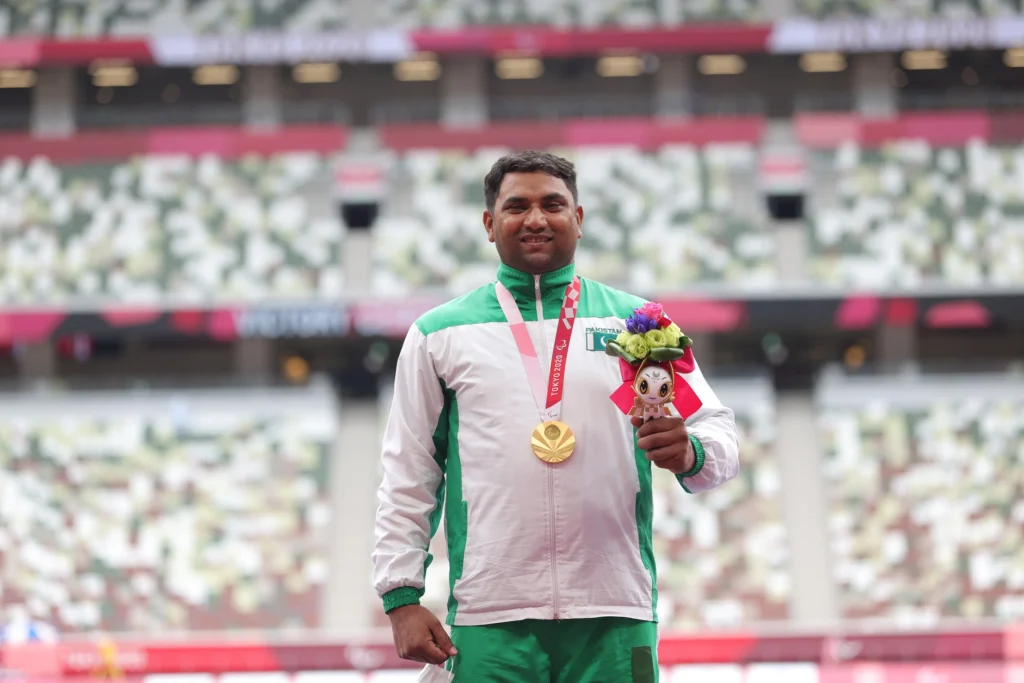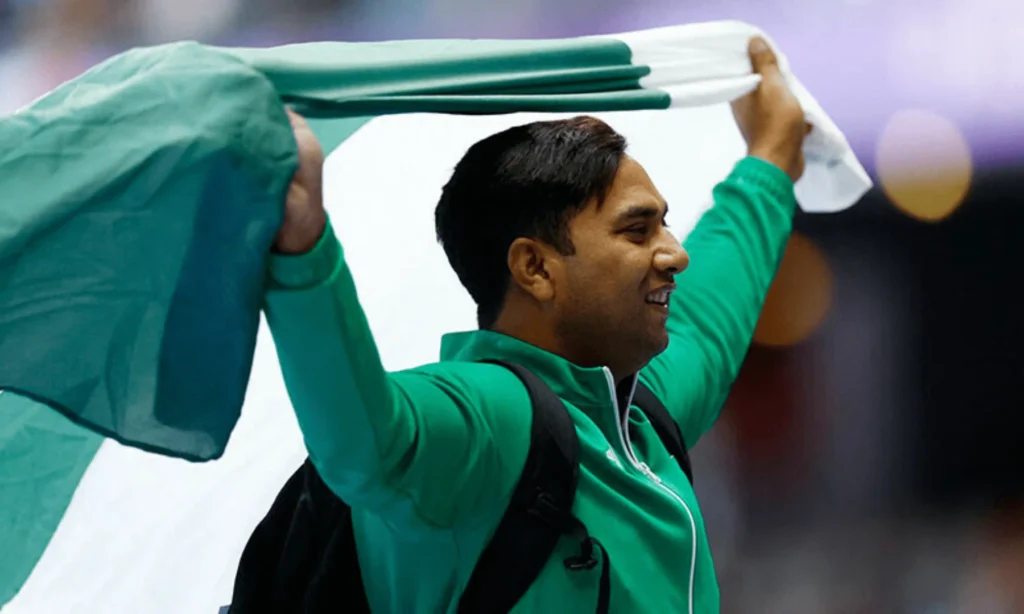Wheels become wings, and crutches turn into swords of light. Every scar is a verse, every motion a defiance of gravity. The stadium is their canvas, painted in sweat and triumph. And in their victory, humanity learns the true shape of strength. This is the saga of Haider Ali, a symphony of grit played out on the grandest stages of the world.
The Making of a Gladiator
Born in Gujranwala on December 12, 1984, Haider’s story began not with a roar, but with a whisper of a challenge. Cerebral palsy left his right leg shorter and thinner than his left, a physical barrier that most would see as a finality. But Haider saw it as a starting line. He was a gladiator in a world that wasn’t built for him. In 2005, a single moment of recognition, a scout at a training camp in Faisalabad, transformed his path, and he was classified under the F37 para-athletics category.
A broken body became a vessel of boundless potential. Under the tutelage of coach Akbar Ali Mughal, Haider’s body became his weapon, and his spirit became his shield. He wasn’t just a long jumper or a discus thrower; he was a multi-faceted athlete, a poet of motion who spoke in the language of high jump and sprinting.
Leaps that Shook the World
His first masterpiece came at the 2008 Beijing Paralympics. With a leap of 6.44 meters in the F37/38 long jump, he didn’t just win a medal; Haider Ali shattered a glass ceiling, equaling the world record and securing Pakistan’s first-ever Paralympic medal, a silver. It was a thunderclap that placed a nation on the global Paralympic map. Life, however, has a way of testing the greatest of spirits. Injuries cast a long shadow, forcing him to miss the London 2012 Games. But a champion’s fire cannot be extinguished. He returned at Rio 2016, and with a bronze medal in long jump, he proved that his legacy was not a fleeting moment but a continuing epic.

His crowning glory came at the Tokyo 2020 Paralympics. In the F37 discus event, he hurled his will and his destiny a remarkable 55.26 meters, leaving his competitors far behind. In that single, breathtaking throw, he secured Pakistan’s first-ever Paralympic gold medal, a prize more precious than any king’s crown. With that victory, he joined a rare pantheon of heroes who have won gold, silver, and bronze. The story continued at the Paris 2024 Paralympics, where he added another bronze in discus throw, making him the only Pakistani athlete, able-bodied or disabled, to win four Paralympic medals.
Haider Ali: The Forgotten Hero
Beyond the Paralympics, Haider’s dominion was vast. He collected a silver and a bronze at the 2010 Asian Para Games, followed by more podium finishes in 2014. In 2019, Haider Ali became the first Pakistani to win a medal at the World Para Athletics Championships, a silver in discus throw. His trophy case glimmers with at least 19 international medals, including nine golds, four silvers, and six bronzes. Yet, his monumental achievements have largely gone unnoticed in his own country. While cricket heroes are celebrated with parades, Haider’s victories are met with silence.
The societal stigma surrounding disabilities, a national obsession with cricket, and a lack of institutional support have left this giant of a man largely uncelebrated. His story is a poignant one of personal resilience in the face of systemic neglect. He is a legend known to a few, a forgotten hero to many. In a nation hungry for global recognition, Haider Ali has carried the torch of Paralympic glory for nearly two decades. His journey is a testament to the true shape of strength, a saga of triumph written not just in medals but in every single moment of defiance.


